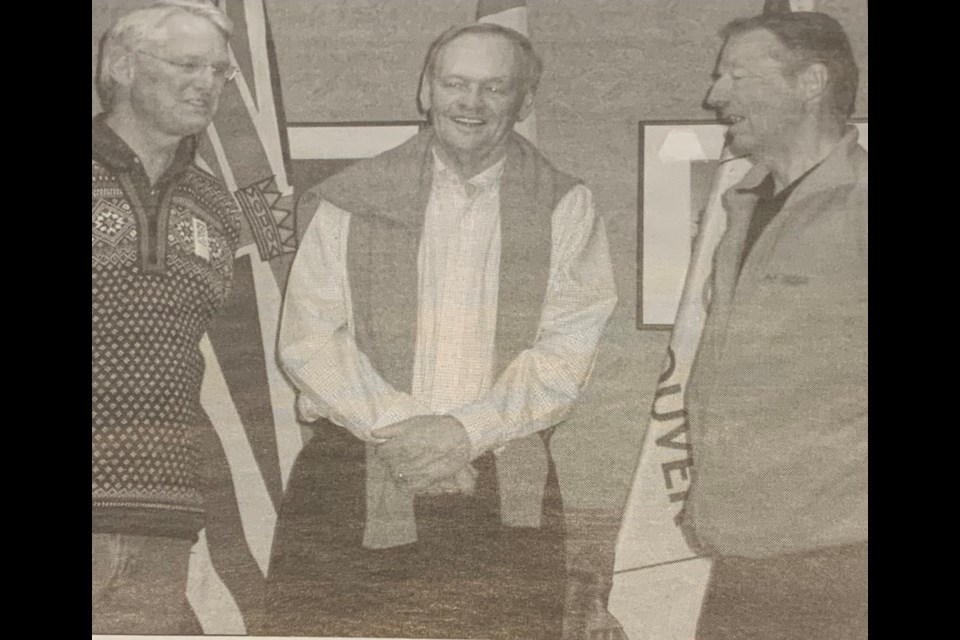Here's a look at what was making headlines in Whistler 20 years ago, during the week of March 7, 2003.
Opposition raised to tolling the Sea to Sky Highway
As talk of upgrading Highway 99 ramped up ahead of the official bid announcement in July, the provincial government floated adding a toll to the highway to pay for the needed upgrades, which ended up costing more than $600 million.
The tolls would have remained in place until the construction costs were paid off.
The Resort Municipality of Whistler, Tourism Whistler, Whistler Chamber of Commerce and several communities in the corridor all voiced opposition to such a cost added to the road.
"This is the first time I can think of that we could get all the six or seven communities together to work with staff and agree," said Whistler Mayor Hugh O’Reilly at the time.
"Relations in the corridor have never been better and transportation has galvanized that."
Construction of the highway upgrades began in 2004 and lasted until 2009.
IOC impressed with Whistler’s commitment to the environment
The battle to host the 2010 Olympics, between Vancouver/Whistler; Pyeongchang, South Korea; and Salzburg, Austria, was well underway in 2003, with the International Olympic Committee (IOC) stopping by for a visit to the resort to assess if Tiny Town was finally ready to host the Olympics after 40 years of trying.
As O'Reilly noted, IOC chair Gerhard Heiberg was impressed with Whistler’s sustainability planning and forest design.
“He was really impressed with not only the community involvement, but also with our planning processes and all the background work, our vision document, our adoption of the natural step, and our sustainability plan,” O'Reilly said at the time.
“It was one of those areas where years of work really paid off because we had the depth. Whistler is a real enigma because we are so economically successful, and yet we are so environmentally conscious, and that is a wonderful thing.”
Following the visit, Heiberg raised concern about Whistler being “too far away” from Vancouver as a strike against the resort’s hosting capabilities. However, the upgraded highway would help alleviate some of these concerns.
Indigenous Tourism supports the 2010 Winter Olympic Games.
During the IOC visit, Indigenous tourism representatives from throughout the province also gathered to launch a new initiative to “welcome the world" to experience First Nations tourism and culture during the 2010 Winter Games. The announcement was made during the Winter Weetama Festival by the chair of the Aboriginal Tourism B.C. society Richard Krentz.
“We are calling to action all Aboriginal tourism and cultural businesses to get ready for the 2010 Winter Games,” Krentz said. “This invitation to the world is a historical event where First Nations and Aboriginal tourism businesses are working together to celebrate our diverse cultures from throughout the province while growing our tourism industry.”
First Nations cultural centre a step closer to reality
What would eventually become the Squamish Lil’wat Cultural Centre (SLCC) was beginning to take shape, as a rezoning application for the two-hectare property in the Blackcomb Benchlands neighbourhood was brought before Whistler council and moved through second reading.
The estimated cost for the project was $13 million, with construction to start in 2004. The SLCC officially opened its doors to the public in 2008, with a final cost of $30 million.
“It's basically a celebration of both nations getting together," said architect Alfred Waugh, founder of Waugh + Busby architects. “It enriches the cultural mix of what Whistler has to offer for tourism.”




